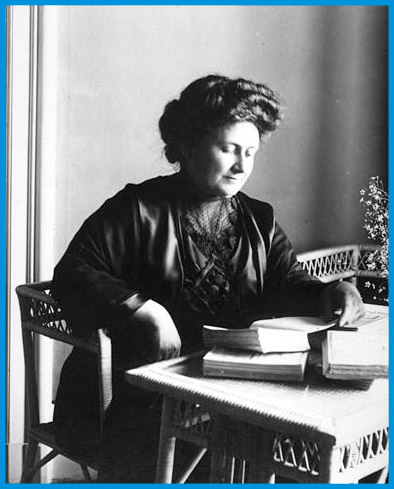
Just who was this woman who sparked an educational revolution that changed the way we've thought about children's education?
Dr. Maria Montessori, born in 1870, was the first woman in Italy to receive a medical degree. She worked in the fields of psychiatry, education and anthropology. She believed that each child is born with a unique potential to be revealed, rather than as a "blank slate" waiting to be written upon. Her main contributions to the work of those of us raising and educating children are in these areas:
• Preparing the most natural and life-supporting environments for the child
• Observing the child living freely in this environment
• Continually adapting the environment in order that the child may fulfill his or her greatest potential, physically, mentally, emotionally and spiritually.
Maria Montessori dedicated her life to observing and working with children. She concluded that children have an absorbent mind, will educate themselves – focusing their energy on one thing at a time – and develop unique skills during the first six years of life, if they are given the opportunity and support. When children are given the right tools, they gain happiness and a strong spirit throughout their youth and adult years.
She adamantly emphasized the importance of developing each child and their individual needs, interests and abilities. Children have a natural desire to learn and this helps them formulate their own educational experience at the speed that works for them. Maria Montessori believed that the teacher is there to guide each child as they follow their own learning path.
She did not like to use the term 'teacher,' she preferred 'directress,' which in Italian reflected the role of someone who inspires and guides, not forces or lectures. She believed children should have the freedom to choose what work to do and what material(s) to work with.
Developing her own materials and methods to educate children, Maria Montessori opened the first Montessori school, in 1907, called La Casa dei Bambini, and her teachings have been passed on for over 100 years.
Since her death in 1952, an interest in Maria Montessori's methods have continued to spread throughout the world.
